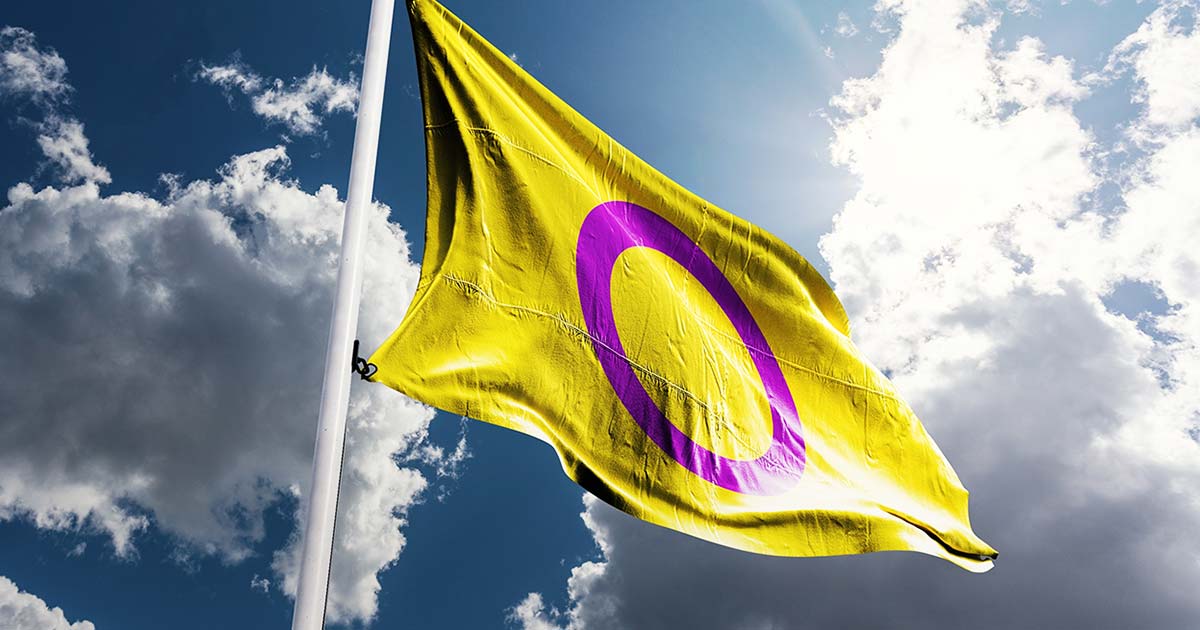Intersex Awareness Day marked in South Africa

Intersex rights groups in South Africa have commemorated Intersex Awareness Day, calling for the rights of all intersex people to be recognised and upheld.
This worldwide observance traces its origins to the first public demonstration by intersex people in North America on October 26, 1996.
Understanding Intersex
Intersex people are born with sex characteristics – such as chromosomes, genitalia, reproductive anatomy, and hormones – that do not fit into typical binary categories of either male or female.
Intersex traits are a naturally occurring variation in humans; some are visible, others are not. Some are apparent at birth, while others become apparent during puberty, or later in life – or are never discovered at all. It’s believed that around 1.7 percent of people are born intersex.
Intersex Genital Mutilation
South African LBTI group Iranti used this day to draw attention to what it termed “state-sanctioned human rights violations and torture” inflicted on intersex people in South Africa and other countries. Intersex individuals, including children, continue to face discrimination, stigma, misconception, pathologisation, and medical violence, it said.
In South Africa, for example, intersex infants and children are still subjected to Intersex Genital Mutilation (IGM) – which refers to coerced, non-consensual, medically unnecessary, irreversible cosmetic genital surgeries and other harmful medical interventions that intersex persons are forced to endure to make their sex characteristics fit the binary of male or female.
IGM takes place in several hospitals in South Africa, (under other names like “corrective surgery”, for example) causing severe long-term mental and physical pain and suffering.
Advocating for Change
“Despite attempts by Iranti and our partners to ensure that the Children’s Amendment Act 2022 incorporates explicit provisions to protect intersex children from these violent medical practices, no express law exists to protect intersex infants and children from IGM and to make it illegal in South Africa,” said the organisation.
“There is no health risk to being intersex and we as an organisation believe children should be allowed to decide for themselves what should happen to their bodies,” it added.
Iranti called on the South African government to ensure that anti-discrimination laws and constitutional protections are effectively implemented for intersex individuals. Furthermore, the organisation urged President Cyril Ramaphosa to press the national Department of Health into urgent discussions with intersex individuals, parents of intersex children, and LGBTIQ organisations working on intersex rights. The goal is to put an end to Intersex Genital Mutilation.
Intersex South Africa’s Message
Intersex South Africa (Issa) said in a message posted online: “Today, we celebrate the beauty of intersex diversity and fight for the rights and well-being of every intersex person.”
Issa emphasised their fight for self-determination in gender recognition, privacy in medical treatment decisions, protection from unnecessary medical interventions without informed consent, and equal treatment under the law, free from discrimination.
“Let us continue to raise awareness and create a more inclusive world! Happy intersex awareness day to all, the intersex people, the amazing intersex advocates and, allies who are working tirelessly to make a difference. Together we are powerful. Today and every day, we stand up for our rights and demand equality for all,” declared ISA.
“Growing up intersex”. From isolation to empowerment, in this article Author Tebogo ‘Pana’ Makwati shares a powerful narrative of self-discovery. They speak about their courageous journey of self-empowerment.”#MarginsToMainstream read the article, https://t.co/Xi91wVRD0m pic.twitter.com/d6rNfTikem
— Intersex South Africa (@IntersexSA) October 25, 2023
Leave a Reply